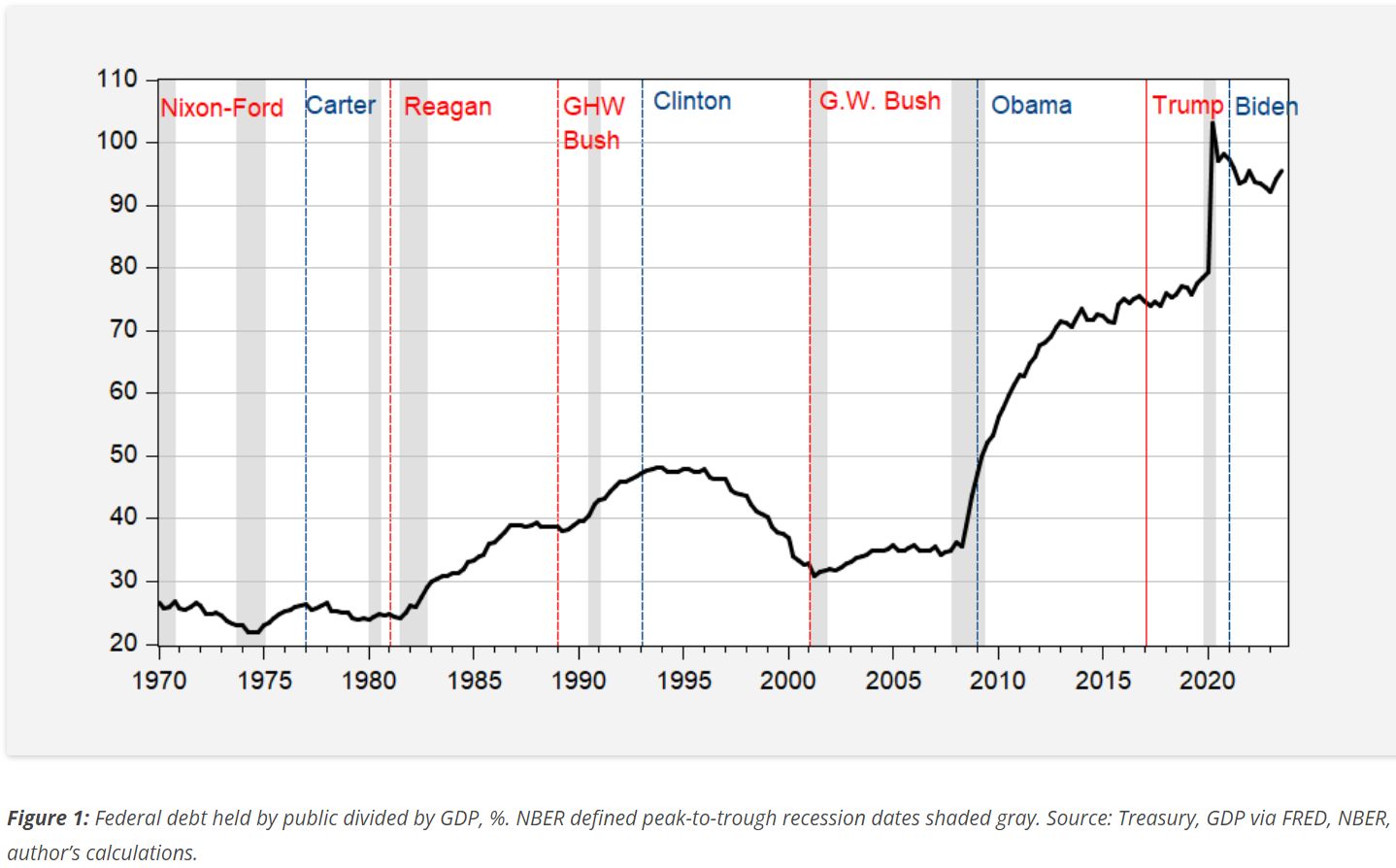In April, 2021, I said, “I don’t see the $1400 windfall spiking inflation, and certainly not for very long.” I was wrong about the stimulus money, because of the persistent supply chain problems. Too much money chased too few goods, and inflation spiked.
I did better in saying inflation wouldn’t last for very long. Scott Pelley asks Jay Powell how that was done.
So, what about the unsustainable fiscal path the United States is on, according to Powell? This graph compares the national debt to gross domestic product over the past 55 years.
The problem of deficit spending getting ahead of debt started under Reagan. It was stamped back down during Clinton’s term. George W. Bush’s financial crisis of 2008 was where the debt-to-GDP ratio took off.
With interest rates at zero, there was a lot of borrowing during Obama’s administration (with some of that money going to the HITECH Act, that distorted the hospital software market, giving Epic Systems of Verona, Wisconsin a leadership position). The effect of the pandemic appears as a vertical line, with all debt and no product!
Republicans are going to insist that spending must be cut to deal with the unsustainable fiscal path. Democrats are going to insist that the ultra-rich pay more in taxes, and that corporations no longer be allowed to hold their profits in overseas tax havens.
Somewhere in the middle is a solution. I think it’s called compromising, which is something Democrats are willing to do. Republicans see that as a sign of weakness in their insistence on playing a winner-take-all, zero-sum game.
Something else Powell said is very concerning in the short term, regarding commercial real estate loans. “Certainly there will be some banks that have to be closed or merged out of existence, because of this. That’ll be smaller banks, I suspect, for the most part.”


Using data from the good folks at the National Bureau of Economic Research in Cambridge.
That is a great graph.